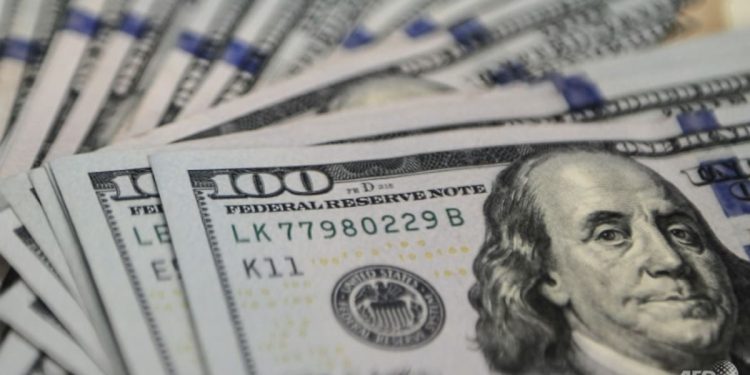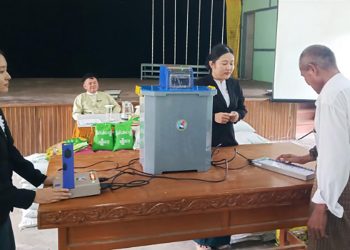As Myanmar’s currency collapsed against the dollar following the 2021 coup, the military regime imposed import-export restrictions and a fixed exchange rate in a bid to control foreign currency flows. But its efforts to prop up the currency have failed, as the kyat continues to plummet.
The junta-controlled Central Bank of Myanmar (CBM) set an official exchange rate of 2,100 kyats per dollar in August last year. The rate offered in the market and private banks then stabilized for several months at 2,800 kyats/dollar. But in the third week of May, the kyat fell in the market to 3,000 per dollar.
The CBM blamed currency manipulation and rumors, and warned of legal action.
Private banks found to be involved in currency manipulation would be punished too, it said.
Meanwhile, it announced plans to sell dollars to private banks. The CBM stopped selling dollars in March 2022, by which time it had sold more than $ 530 million under junta rule.
Currently, the CBM does not supply enough dollars to businesses that need the greenback, businesspeople told The Irrawaddy.
“The CBM’s talk about dollars is empty. Dollars sold by the central bank never actually reach businesspeople. Only a handful of people get most of the dollars sold by the CBM. Businesspeople don’t want to take risks when there is no profit, so many operators are just maintaining their existing businesses with a wait-and-see attitude,” an exporter told The Irrawaddy.
The CMB requires business owners to exchange 65 percent of their export earnings at the official exchange rate of 2,100 kyats per dollar. But to import goods, they have to buy dollars at the market rate of 2,800 to 3,000 kyats.
Myanmar is facing a foreign currency crisis because the junta’s CBM is restricting, not regulating, the money market, US-based Myanmar economist U Sein Htay told The Irrawaddy.
“Problems arise when they [the Myanmar military] routinely and oppressively intervene in the national economy. First, the central bank imposed restrictions on [private] banks. Again, people have no trust in them. And [the junta] has tightened its grip on exports and imports bit by bit. It is desperate for dollars. Since merchants are not making profits, the national economy is already suffering,” he said.
The collapse in exports and foreign direct investment coupled with a lack of international loans have choked off the amount of US dollars flowing into Myanmar, and the regime’s foreign currency reserve is dwindling, U Sein Htay said.
Before the military seized power from the democratically elected National League for Democracy government in 2021, Myanmar had US$ 7.7 billion in foreign reserves, according to international monetary organizations.
Credible data is scarce since the coup, but the junta has increased military spending in the face of the nationwide armed resistance over the past two years and may have also used dollar reserves to fund the coup, said economists.
The junta has imported at least US$1 billion worth of weapons and related materials from Russia, China and other countries in less than two years, according to a UN report.
Junta spokesman Major General Zaw Min Tun revealed in July last year that the regime had to pay around US$ 700 million in loan repayments and interest.
Meanwhile, vital imports such as fuel, pharmaceuticals and cooking oil cost billions of dollars yearly.
“If there is a dollar crisis, there will be fewer imports and the economy will falter further,” commented a Yangon-based economist.
“The black market of the socialist era [1962-88] will return to Myanmar.
There is already a black market for dollars.”
The regime’s actions are weakening the market economy, driving the growth of the black market, the economist added.
The junta is now accepting foreign currencies including the Thai baht, Chinese renminbi, and Indian rupees in cross-border transactions to reduce its overall dependence on the dollar. But economists say this is only a short-term fix.
“Production is in chaos because of [the regime’s] intervention and mismanagement. They are managing the economy with orders, like fighting a war with weapons, so the economy will only worsen,” said U Sein Htay.

















